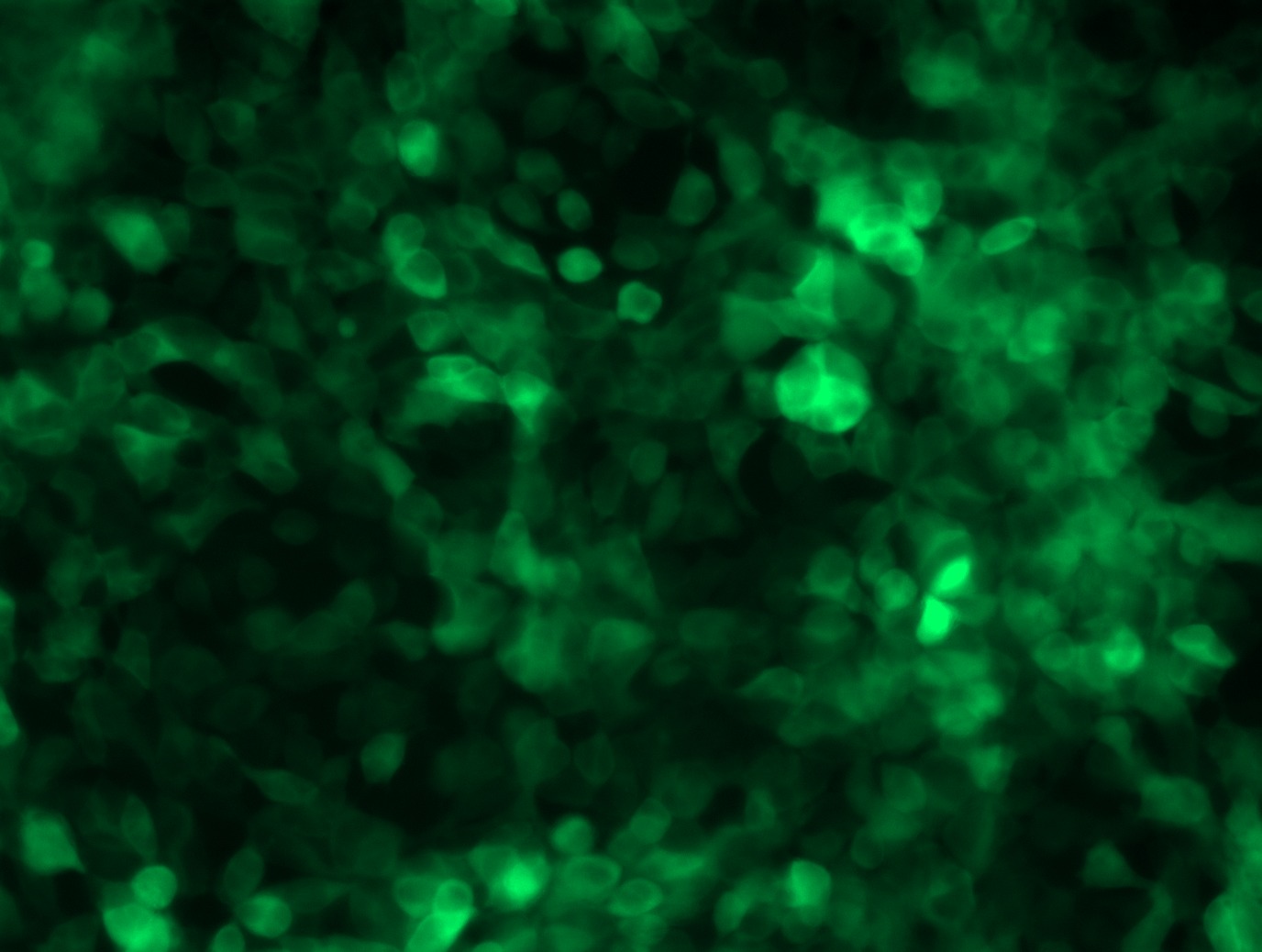Ido1 (NM_008324) Mouse Tagged ORF Clone Lentiviral Particle
CAT#: MR206394L2V
- LentiORF®
-

Lenti ORF particles, Ido1 (GFP-tagged) - Mouse indoleamine 2,3-dioxygenase 1 (Ido1), 200ul, >10^7 TU/mL
Lentiviral Particles: DDK DDK w/ Puro mGFP w/ Puro
Interest in protein/lysate? Submit request here!
Buy this product and get 50% off on the Lenti RapidTiter kit. Use Code: Rapid50
USD 365.00
Specifications
| Product Data | |
| Type | Mouse Tagged ORF Clone Lentiviral Particle |
| Tag | mGFP |
| Symbol | Ido1 |
| Synonyms | Ido; Indo |
| Mammalian Cell Selection | None |
| Vector | pLenti-C-mGFP |
| ACCN | NM_008324 |
| ORF Size | 1224 bp |
| Sequence Data |
The ORF insert of this clone is exactly the same as(MR206394).
|
| OTI Disclaimer | The molecular sequence of this clone aligns with the gene accession number as a point of reference only. However, individual transcript sequences of the same gene can differ through naturally occurring variations (e.g. polymorphisms), each with its own valid existence. This clone is substantially in agreement with the reference, but a complete review of all prevailing variants is recommended prior to use. More info |
| OTI Annotation | This clone was engineered to express the complete ORF with an expression tag. Expression varies depending on the nature of the gene. |
| Reference Data | |
| RefSeq | NM_008324.1 |
| RefSeq Size | 1506 bp |
| RefSeq ORF | 1224 bp |
| Locus ID | 15930 |
| UniProt ID | P28776 |
| Cytogenetics | 8 A2 |
| Gene Summary | Catalyzes the first and rate limiting step of the catabolism of the essential amino acid tryptophan along the kynurenine pathway. Involved in the peripheral immune tolerance, contributing to maintain homeostasis by preventing autoimmunity or immunopathology that would result from uncontrolled and overreacting immune responses. Tryptophan shortage inhibits T lymphocytes division and accumulation of tryptophan catabolites induces T-cell apoptosis and differentiation of regulatory T-cells. Acts as a suppressor of anti-tumor immunity (PubMed:25691885). Limits the growth of intracellular pathogens by depriving tryptophan. Protects the fetus from maternal immune rejection (Ref. 3).[UniProtKB/Swiss-Prot Function] |
Documents
| Product Manuals |
| FAQs |
| SDS |
Resources
{0} Product Review(s)
Be the first one to submit a review






























































































































































































































































 Germany
Germany
 Japan
Japan
 United Kingdom
United Kingdom
 China
China

